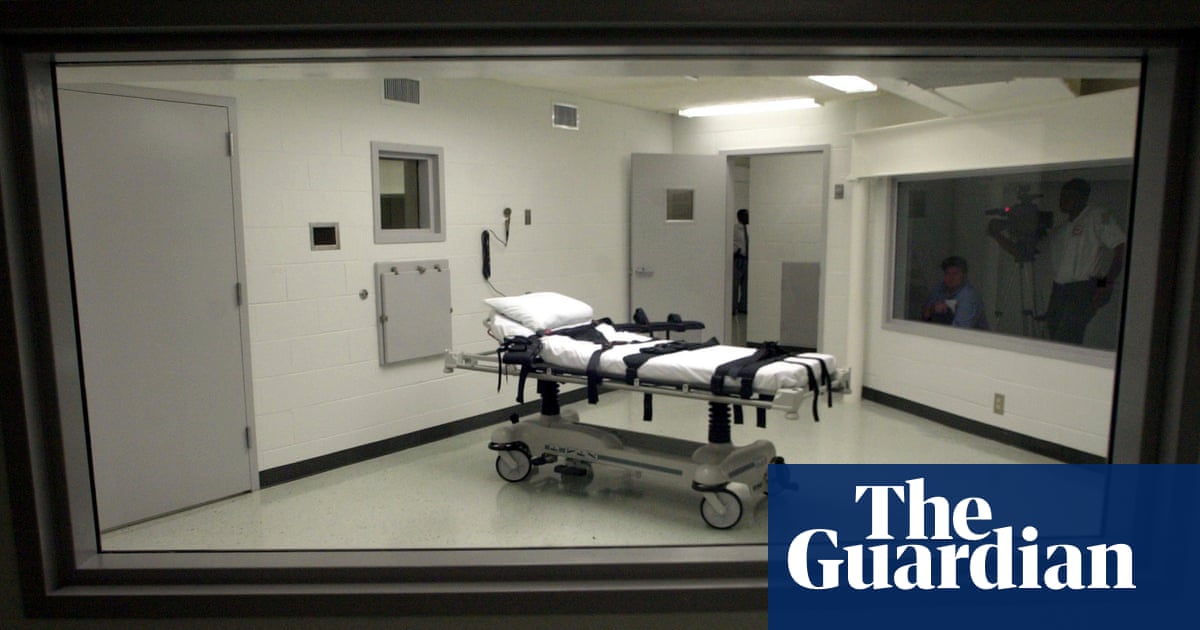Move follows Alabama’s recent killing of death row inmate Kenneth Smith using previously untested method
Three of the largest manufacturers of medical-grade nitrogen gas in the US have barred their products from being used in executions, following Alabama’s recent killing of the death row inmate Kenneth Smith using a previously untested method known as nitrogen hypoxia.
The three companies have confirmed to the Guardian that they have put in place mechanisms that will prevent their nitrogen cylinders falling into the hands of departments of correction in death penalty states. The move by the trio marks the first signs of corporate action to stop medical nitrogen, which is designed to preserve life, being used for the exact opposite – killing people.
The green shoots of a corporate blockade for nitrogen echoes the almost total boycott that is now in place for medical drugs used in lethal injections. That boycott has made it so difficult for death penalty states to procure drugs such as pentobarbital and midazolam that a growing number are turning to nitrogen as an alternative killing technique.
Now, nitrogen producers are engaging in their own efforts to prevent the abuse of their products. The march has been led by Airgas, which is owned by the French multinational Air Liquide.



Sure. If it was done correctly and we could trust the justice system to not kill innocent people. However they figured out the cruelest way to do it and SCOTUS ruled we have to kill innocent people even if all the evidence says they’re innocent because it might hurt the court’s reputation of they back down.
I’m not familiar with this. Is this something that actually happened?
Shinn V Ramirez, 2022.
They were arguing ineffective counsel post conviction because evidence wasn’t submitted that could have shown Ramirez was innocent. Lower courts agreed, citing previous SCOTUS rulings. SCOTUS decided federal courts must be bound by the original evidence only.
Money Quote -
(Separated for clarity)
Personally I love how they say we need to respect a state’s right to enforce social norms. With the death penalty. Because those are equivalent things. Betty doesn’t like to mow her lawn. She likes to let her neighbor Lucy do it. Off to the chair for her! Okay jokes aside what they mean is their power to make laws, enforce laws, and have a court system.
And then it’s too expensive? Really? I’m not going to be surprised when we end up with the purge only instead of being everywhere it’s actually when the air raid siren goes off during yard time at the prison.
I believe they’re referencing this:
. . .
. . .
NPR Source
This is so from 2022.
I hate the Supreme Court so much.
It’s called “finality”.
The idea that it’s more Important that the process is followed and then stops at some point than that justice is achieved.
Same reason they barred introduction of new evidence when appealing from state court to federal, giving potentially corrupt state courts full power to block exculpatory evidence to deny someone justice because the federal courts must uphold the verdict if the evidence which was accepted indicates guilt under the state law. Same thing if the prosecutor knows of evidence of innocence and withholds or, or if the evidence only turns up after the trial. You get only one chance and then you’re screwed.
yes more then once. Most recently the supreme court ruled you can’t bring new evidence to an areal. Why? because it would undermine the state right to be sure of their decision. Also note that the most successful way to win an appeal on a criminal case was to bring new evidence that showed your defense did not do their job or the prosecution withheld evidence that showed your innocence.